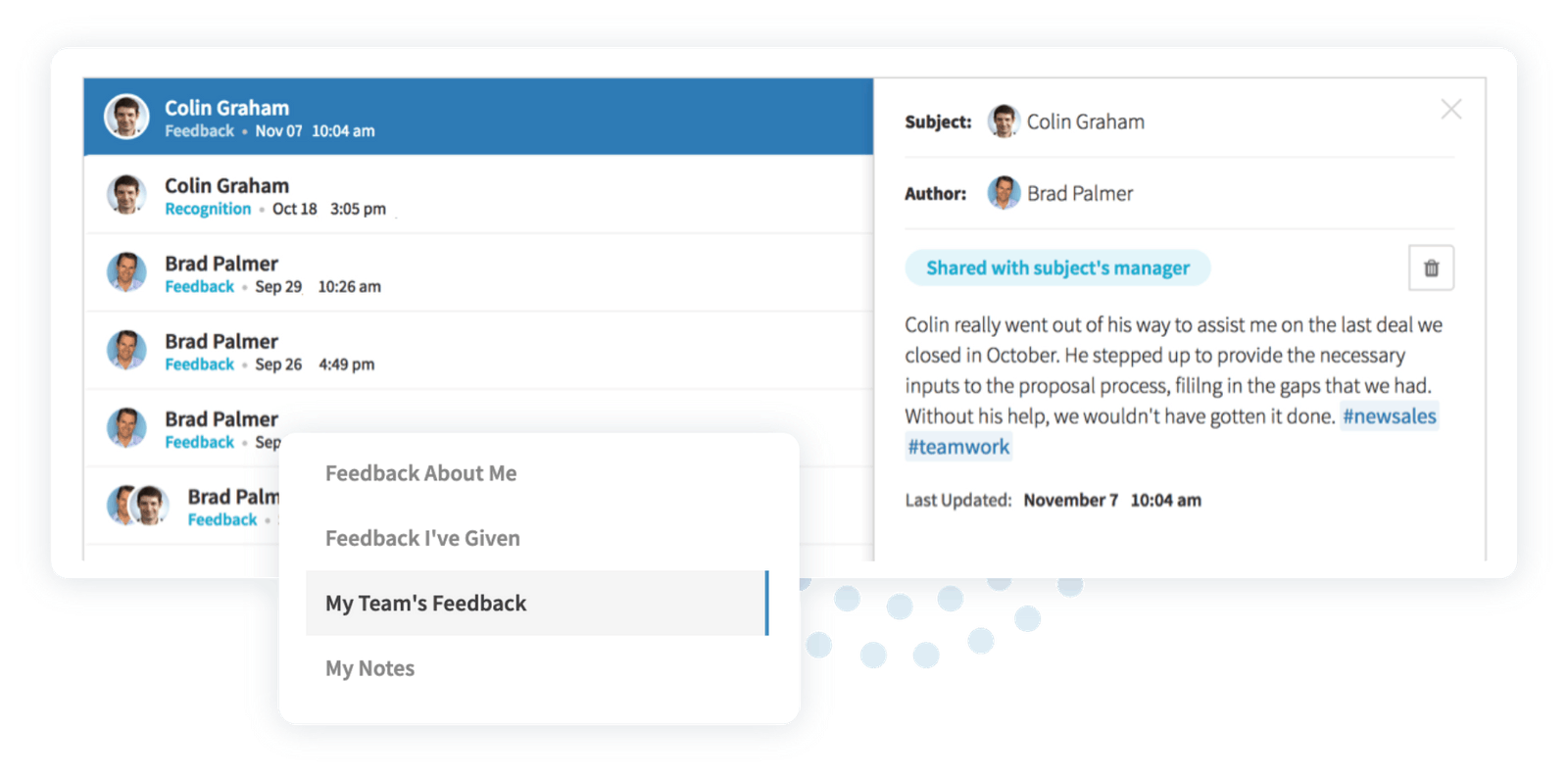7 Benefits of Modern Performance Management
Ready to make the switch to a more modern performance management approach?
Organizations that update their process have a lot to gain. In this article we cover seven benefits of performance management. These tips should give you all the reasons you need to modernize your own performance management process.
Considerations for 2025
Performance management addresses many of the top issues businesses are facing in 2025. The process improves employee retention by giving your business a system that allows you to recognize employee contributions. Employees are more likely to stay when they feel their work is being recognized and rewarded.
Performance management systems can also build a strong culture in a remote work environment. Top practices like 1:1s, continuous feedback and 360 reviews provide meaningful touch points in a remote world that often lacks engagement.
Let's explore some of the other benefits of modern performance management.
1. More Frequent Feedback
Modern performance management strategies increase the frequency of the feedback employees receive. Whether it’s quarterly check-ins, project-based reviews, continuous feedback or frequent goal setting; when managers and employees are meeting more often good things happen.
Frequent feedback means that employee performance becomes a year-round conversation rather than just for the month before and after an annual review. It also keeps feedback relevant to the moment. It probably doesn’t make sense for employees to be guided for 12 months by one conversation?
Most organizations are faster and more agile than they ever have before. It’s important that performance management keeps up.
2. Diverse Sources of Feedback
Modern approaches don’t just increase the frequency of feedback, they also increase the sources of feedback.
Downward, self, upward, peer and external feedback all help to clarify the picture of employee performance. Employees are more to your organization than a relationship with one other person.
Also, relying too heavily on a single point of feedback can make it hard to identify biased data.
3. Feedback Becomes Action
Modern performance management is about results, not just completed forms in a filing cabinet.
That’s why approaches like Deloitte’s project-based reviews or Adobe’s quarterly check-ins do more than just promote long-term discussions of performance. One of the benefits of performance management is it also encourage goals for setting intentions and continuous feedback for translating intentions into actions.

When you update your performance management approach, the discussion between a manager and an employee about performance becomes just the first step. Ultimately the goal is to be driving meaningful outcomes for your organization.
4. Outcomes Relevant to the Organization
When HR builds a modern performance management strategy, they cater it to the needs of their own organization. Some focus on accountability, others on employee development or organizational alignment.
It’s no longer something you pull off the shelf for vague reasons like compliance. This means that the outcomes are relevant to the goals of the organization. If a fast-moving organization with a flat hierarchy implements an organizational alignment strategy they’re doing so because it solves a meaningful problem.
5. A Process Relevant to Employees
A classic complaint employees have about annual reviews is that “half the questions don’t even apply to me!”
When managers and employees realize the new performance management approach has been built for them they’re far more likely to embrace it. Modern approaches also emphasize streamlined systems so that employees spend more time discussing feedback and less time administering clunky systems.
6. Better Performance Data
Modern strategies also focus on better questions that generate better data. The idea is to ask people questions they know the answers to.
Questions like “Is this employee ready for a promotion?” or “Would you want to work with this employee again?”
Modern approaches also rely more on qualitative data in addition to quantitative data in order to capture the nuances inherent to human performance.
7. More Transparency and Fairness
Centralizing and standardizing performance management helps keep conversations about employee performance open and fair.
If your organizations is driving how performance is evaluated or recognized your less likely to have situations arise where managers are running their own systems that are incompatible with the your values.
Ready to Enjoy the Benefits of Performance Management?
If you’re looking to switch to modern performance management, the next step is to choose the approach that’s right for your organization.
Check out our guide here.



.jpg)